JOHN ALSTON
In His Own Words
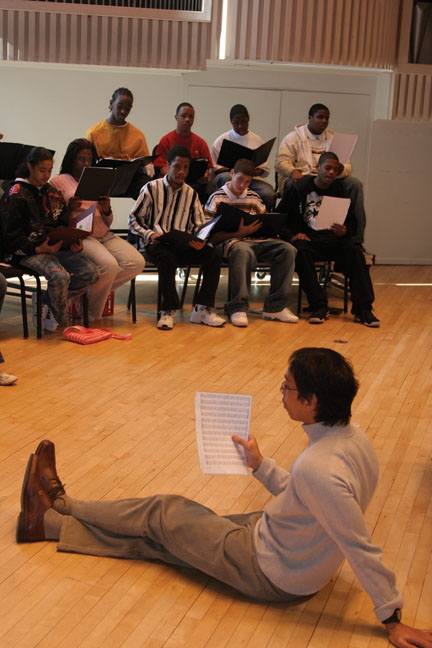 What kept you from “just passing through?”
What kept you from “just passing through?”
The work was good. I didn’t know where to go next, so I stayed here and grew up a bit. When I came, I was such a kid. I had a lot to learn, and I grew up at Swarthmore. And then I was lucky enough to be able to take a little bit of wisdom out to Chester. It’s just a little bit, but I learned it here.
What sort of wisdom?
Knowing that there are more important things in life than polishing your own craft. It took me seven years working with the children’s chorus before I really understood what I was doing and what my purpose was—trying to take care of as many folks as you can in your lifetime. I couldn’t have said that 17 years ago, when I showed up at Swarthmore. When Al Bloom first used the term “ethical intelligence,” I had some sense of what that meant, but it didn’t really mean anything here [taps his chest]. I hadn’t read enough about history or thought enough about justice. I showed up with pretty good music skills, but I didn’t have the other stuff. I couldn’t talk politics; I couldn’t talk history. I had a very narrow education. So I started reading. And the more I read about and became familiar with American history, with how things got to be this way, the more I understood what it was that I was supposed to do.
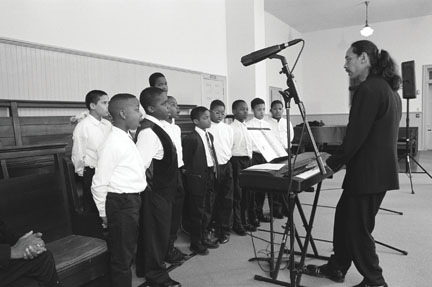
The modest ambitions of the original chorus have grown over time. An early choir (above) performed in the Swarthmore Friends Meetinghouse, ca. 1997.
And what are you supposed to do?
We can make it possible for every child in Chester to have a wonderfully productive life, to have the same opportunities as kids in the Wallingford/Swarthmore school district; to have 10,000 opportunities; to have all the adults that surround them tell them thousands of times that they’re beautiful, that they’re awesome, that they can learn things. I’d like children in Chester to wonder about abstract ideas, to learn a foreign language, to be curious about the rest of the world.
I dream about that stuff. I didn’t have a lot of that when I was growing up. And coming to Swarthmore, I saw what happens when kids have parents who are equipped to give their children this kind of education. It’s not just a question of money; it’s what you value.
What was your idea behind the boys’ choir?
I grew up in northern New Jersey, and for two years I was in the Newark Boys’ Chorus. We rehearsed three hours a day, six days a week. I learned to read music, and we had a separate hour of musicianship and sight-reading. So I was doing four hours of music a day when I was 11 years old. By the time I was in the seventh grade, I knew I wanted to be a professional musician.
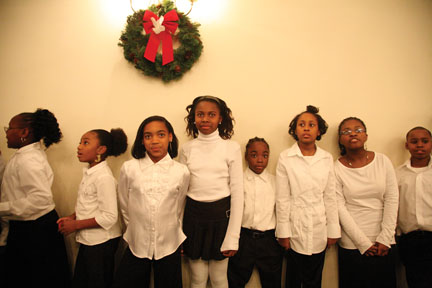
The Chester Children’s Chorus aims to expand membership by 25 musically gifted children by 2011. In fall 2009, it’s implementing an initiative that will marry music to learning in kindergarten and first-grade across the Chester-Upland School District. The Sing to Learn Partnership will teach music for its own sake—and use songs to reinforce classroom lessons, a concept known as arts integration. It’s now well established that music is a distinct form of intellectual activity and that children learn more effectively when they employ multiple types of intelligence.
I was a little selfish when I started the chorus. It was very much John-driven, and it took a while for me to get beyond that. I wasn’t paying attention to the kids. The idea of training a professional boys’ chorus was ill informed, shall we say. All I imagined early on was creating something that sounded beautiful. That was the mission, to create something that sounded beautiful.
These kids have taught me a lot. Now, I want them to have the opportunity to develop into powerful beings, and while I hope that most of them will remain music-lovers and some of them will embrace classical music, what I really dream about for these kids is that they can go out and change the world. And that’s the truth.
If this program doesn’t do that, then it’s not working. The oldest boys, I can talk to them very directly: If you guys don’t grow up and become superheroes, then nobody’s going to be able to change your community, because you’re the guys who need to put on your superhero capes and go out and become doctors and lawyers so that you can come back and make things right. It has to begin there.
What would “making things right” look like in Chester?
Per capita income in Chester is $13,000. The average median household income is less than $25,000. The high-school dropout rate is more than 50 percent. When 90 percent of the high school graduates in Chester are going to college, when every family is making more than a living wage—that’s what it would look like.
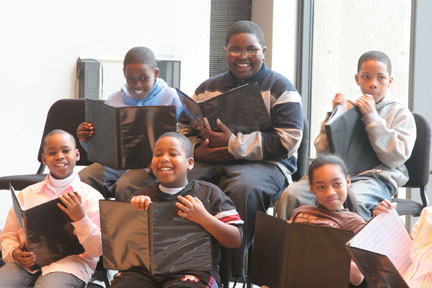
Before a concert, says sixth-grader Kenan Hilyard, “I feel nervous, excited, happy, sad, mad, embarrassed—and a bunch of other feelings all at once.” Yet a standing ovation, says high-school senior Jabree Reaves, “makes you feel like you want to do the whole show over again. You just don’t want to leave.”
There should not be this many poor people living in a city so close to a place like Swarthmore. How is it justice that right here in Swarthmore there’s this [college] that is one of the most exclusive and powerful and influential and difficult to get into? How is it justice that there is so much here and three miles down the road there is so little? What allows that to happen? I understand that capitalism, like justice, is blind, but still. Isn’t there some way that we can have some of this goodness and some of this sweetness just move down the road?
But if everybody in Swarthmore, everybody connected to the College, and everybody who lives in this town—if everybody did everything that they could to take care of everybody close by who needed help, we could solve it. There are smart people who live in this town. There are smart people who work at this College, and I am so appreciative for everyone’s help, but there is so much more. We are holding so much back; there are people who just aren’t giving it up. They just keep it. For what? How many millions of dollars do you need? Seriously. You don’t. You need to give it away. You don’t need to give it away mindlessly. It needs to have purpose, of course. But we have purpose.
At the last concert, I asked the adults to be the people that they want their children to be. We’re constantly telling our children, “You have to learn to share.” And we say these things all the time: “You know, you can’t fight. You have to find a way to get along.” But then we grow up and become adults, and sometimes we share, but mostly we don’t. Or our idea of family is very, very limited, and we forget to practice what we preach all the time—you know, big things like “love your neighbor,” which is hard to do, but it’s not impossible.
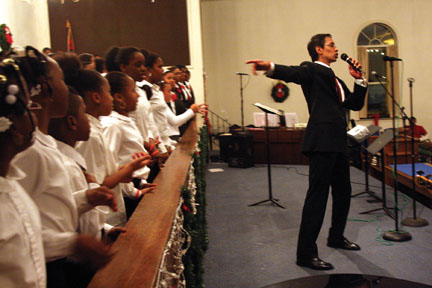 What’s your idea of family?
What’s your idea of family?
I can’t say that I have an idea, because my brother and my mother and I spent so little time together growing up, so I’m just happy being around anybody that I love, and especially the children. I think you just need to go out and find as many people as you can to love and start to take care of them, as much as they need, give as much as you can. And the truth is, I’m not there yet. But these kids will help me get there.
The motto of the Chester Children’s Chorus is “We use music to build strong voices, strong minds, strong spirits.” How does choral music accomplish these goals?
Why do people gather together and sing? Because we crave community. Because we want to celebrate the things that we believe are beautiful. Because when we sing as a group, we become more powerful. Can you imagine the civil rights era without music? Slaves would have survived without music, but music made it possible for part of their culture to flourish, and for part of their history to survive forever. That history will be with us forever, because people will always sing spirituals. They will always be with us.
A lot of the music that I write for the chorus embraces the kids’ musical traditions. I didn’t understand that when I first started working with them. I had this fantasy that we would be singing Bach cantatas—that I’d be bringing the gospel of Johann Sebastian Bach to the kids. What was I thinking? I didn’t know any better. I didn’t know anything about Chester; I didn’t know anything about what these kids needed. But when I began to pay attention to what they were telling me, the signals they were giving me, I began writing music that embraced ideas of social justice and change and compassion and sharing.
You also have to give them a groove that they understand. So I spend a few hours every week listening to their radio stations; I listen to the tempo, to the grooves that they like, to the hooks that they like, and I try to imitate that stuff in the gospel music that I write for them. I call it gospel music, and they think it’s gospel music, but it’s not typical praise music. It’s music about justice.
But almost anything will work with children if it’s done lovingly and thoughtfully. If you have that combination of love and nuttiness to be around children, then they will want to be around you.
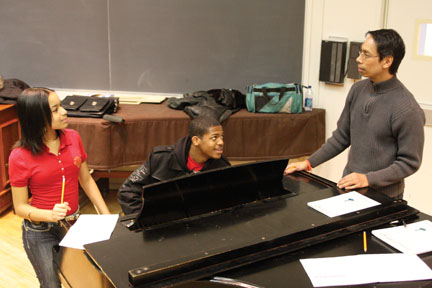
Ja’Quay Lundy and Jabree Reaves are among several chorus members who study music theory after weekly chorus rehearsals. Lundy wrote a school paper about Alston: “[My teacher said, if you had to pick one person in the world that was a hero and an inspiration, who would it be? I picked John. His songs are so beautiful—it’s beautiful how he can share that with the world.”
Voices. Well, their voices get stronger. They learn to sing in dozens of languages. They explore the whole world musically. That’s the easy part. Engaging minds—I try not to run a typical rehearsal, where I sing, they sing back. I try to ask the children what they’re singing about. We talk about text. We talk about context. It’s rarely planned. I don’t come in with the lecture of the day, but if kids have questions and want to know things, then we try to talk about it. The kids don’t have a lot of practice discussing big ideas in front of each other. We also need to learn to do that. Some of them need to develop into fabulous public speakers, so that they can be advocates for their community.
Are you teaching a kind of discipline—or self-discipline?
I try not to use the word “discipline.” The idea of just being able to do something whether you like it or not is useful, but I think it’s the wrong way to look at it. Mostly, when children are moving in a different direction from the group, it’s because they need something. Rarely are children at fault. Somebody older than they are—somebody in charge—created that situation for them. So a Training Chorus rehearsal is never about the group. It’s always about 16 little kids. The older kids become, the more demanding I am.
You have to listen to the kids. If you’re rehearsing a piece of music with 25 kids, and 20 of them aren’t paying attention, they are clearly telling you that the piece is not for them. I tried to teach the “Hallelujah Chorus” four years ago. I sang a line and asked them to sing it back, and they sang half-heartedly. I sang it again, and again they sang it back half-heartedly. I remember being so disappointed. I asked them, “Do you guys like this? This is one of the greatest pieces ever written—Handel’s ‘Hallelujah Chorus.’ And they said no, it’s boring, it just keeps saying the same thing over and over again. They weren’t ready for it, and there was nothing I could do to make them ready for that piece—but I brought it back last year, when they were ready. This time they loved it. They absolutely loved it—and the audience gave them a standing ovation.
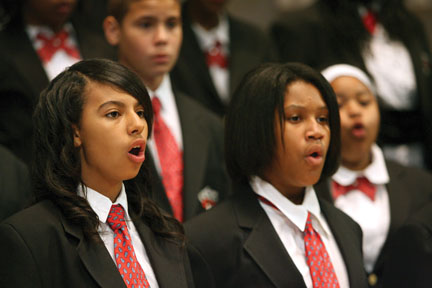 What’s the relationship between the chorus and the Chester Upland School of the Arts?
What’s the relationship between the chorus and the Chester Upland School of the Arts?
They’re separate organizations, but the big idea is the same—to help as many children as possible. In the last five years, again as I began to pay more attention to the children and to understand what the chorus really should be, I was always a bit disheartened and sad when I would talk to them about what they had done in school and heard their lack of excitement, their lack of wonder about the day’s lessons. I thought, you’ve been in school for six hours; you should be able to tell me something. There should be something wonderful that you like. I wasn’t quite sure what that something was, so that’s when we started dreaming about building a school, about five years ago in earnest, and then four years ago we started doing research, and three years ago we got very serious about fundraising, and here we are, a school later.
Are you a religious person?
I don’t have a standard religious practice, but I think very deeply about God, and I’m sure that I was put on this planet to do this work with these children. I am sure that is how we are all supposed to do God’s work, through helping others. Jesus spent so much time talking about that, and he spent so little time talking about the stuff that we often fight about. And here we are, 2,000 years later, still learning to love our neighbors as ourselves. We just cannot figure that out. And so I’m going to sing about it and talk about it and ask folks for money so that we can spread that word until I can’t do it anymore. That’s the truth.
Amen.
 Email This Page
Email This Page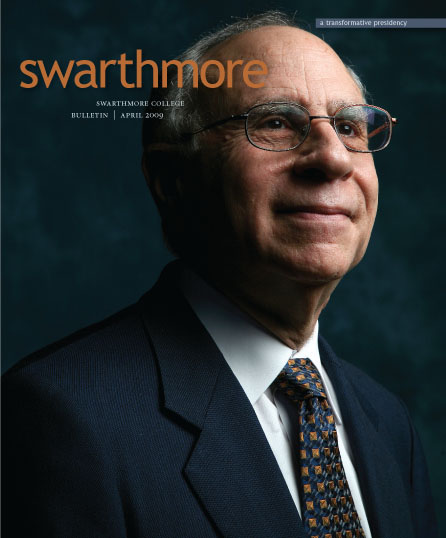
August 22nd, 2009 12:38 pm
Very inspirational article. Thank-you John Alston for your compassion, your comittment
to helping others, your making our world a much better place, one musical note, one song, one child's life at a time.
Many, many blessings to you and all your endeavor's.
Rose Winstanley-Trefz
Piano Tuning & Life Coaching
http://www.livingintune.com
October 2nd, 2009 9:43 pm
I'll never forget you and all that you have done for us!
Thank You
October 5th, 2009 11:10 am
Wow it's so great to see all this From years past!!!